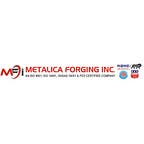Understanding Flange Standards: ANSI, ASME, and Beyond — Metalica Forging Inc
Metalica Forging Inc. is one of the leading Flanges Manufacturer in India. We provide industrial pipe flanges in sizes from 12″NB to 48″NB. Flanges link pipes to tees, elbows, reducers, valves, and other piping components. We also are one of the largest Flange Suppliers in India.
We are also the top Flanges Manufacturers in India. We meet our clients’ enormous global needs, which are spread across five continents and nearly 80 countries due to its high quality and durability.
Our BS 4504 Carbon Steel Forged Flange is well-appreciated and well-known worldwide. We consider our clients to be partners when we offer them our products and services. Flanges Supplier In India is utilized throughout the country. The Indian producer of ASTM A105 flanges continually grows its services. We also leading JIS Flanges.
We are also one of India’s most trusted flange supplier. An ASTM A105 Flange is comprised of carbon steel and is utilized in high-pressure, high-temperature environments.
What are Flanges?
Flanges are mechanical devices used to connect pipes, valves, pumps, and other equipment to form a piping system. They are typically bolted together and sealed with a gasket to ensure a leak-proof joint. Flanges come in various types, such as weld neck, slip-on, socket weld, lap joint, and threaded, each serving different purposes and application scenarios.
ANSI and ASME: The Foundations
ANSI (American National Standards Institute)
The American National Standards Institute (ANSI) oversees the development of voluntary consensus standards for products, services, processes, systems, and personnel in the United States. ANSI does not develop standards itself but accredits organizations that do. For flanges, ANSI’s involvement is mainly in the form of endorsing standards developed by other organizations, such as ASME.
ASME (American Society of Mechanical Engineers)
The American Society of Mechanical Engineers (ASME) is a professional organization that develops and publishes standards across a wide range of engineering disciplines, including pressure vessels, piping, and flanges. ASME standards are widely recognized and used around the world.
ASME B16.5
One of the most critical standards for flanges is ASME B16.5. This standard covers pipe flanges and flanged fittings for sizes ranging from ½ inch to 24 inches. It specifies dimensions, materials, pressure-temperature ratings, tolerances, marking, and testing requirements. ASME B16.5 flanges are classified based on their pressure rating, which ranges from 150 to 2500, indicating the maximum pressure (in psi) they can handle at a specified temperature.
ASME B16.47
For larger flanges, ASME B16.47 comes into play. This standard covers flanges for sizes from 26 inches to 60 inches. It is divided into two series: Series A (formerly MSS SP-44) and Series B (formerly API 605), each with different dimensions and pressure ratings. Series A flanges have thicker and heavier construction compared to Series B, providing higher strength and rigidity.
Most Trusted Manufacturer leading flanges in several Indian cities:
MS Flanges Manufacturer In Rajkot
MS Flanges Manufacturer In Ahmedabad
MS Flange Manufacturer In Surat
MS Flange Manufacturer In Pune
MS Flange Manufacturer in Bhavnagar
Beyond ANSI and ASME: Other International Standards
While ANSI and ASME standards are prevalent in North America, other parts of the world follow different standards. Some of the most significant ones include:
DIN (Deutsches Institut für Normung)
DIN standards are widely used in Germany and Europe. DIN 2633, for example, specifies welding neck flanges, covering dimensions, tolerances, and material specifications. DIN flanges are known for their precision and robustness, making them suitable for high-pressure and high-temperature applications.
EN (European Norm)
The European Norm (EN) is a standard that applies across the European Union. EN 1092–1 is the most commonly referenced standard for flanges in Europe, covering dimensions, pressure ratings, materials, and testing requirements. It includes different types of flanges such as plate, loose, welding neck, and threaded flanges.
JIS (Japanese Industrial Standards)
Japanese Industrial Standards (JIS) are used in Japan and other parts of Asia. JIS B 2220 is the standard for steel pipe flanges, specifying dimensions, materials, pressure ratings, and testing requirements. JIS standards are known for their high quality and reliability.
GOST (Gosudarstvennyy Standart)
GOST standards are used in Russia and other countries of the former Soviet Union. GOST 12820–80 is the standard for flat flanges, covering dimensions, tolerances, and material specifications. GOST flanges are designed to withstand extreme conditions, making them suitable for applications in harsh environments.
Key Considerations for Selecting Flanges
When selecting flanges for a piping system, it is essential to consider several factors to ensure compatibility and performance:
- Pressure Rating: Ensure the flange can handle the maximum pressure of the system.
- Material: Choose a material that is compatible with the fluid being transported and the operating conditions.
- Temperature: Verify that the flange can withstand the operating temperature range.
- Size and Dimensions: Ensure the flange matches the pipe size and meets the required dimensions.
- Standards Compliance: Confirm that the flange complies with the relevant standards for the region and application.
For More Details
Website: metalicaforginginc.com
